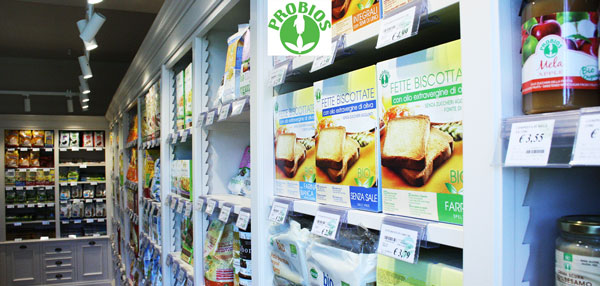
Organic, sustainable, natural and all the other words we use but don't know about.
In a world that is always more connected and dinamical on an economical and social aspect, but for this reason also messy and confused, re-establishing a balance on our daily routine represents a goal for our wellness. And which ritual is the main, more usual, ordinary and more natural than feedinf ourselves? A various diet is the reflexion on a healthy life.
Accordins to the WHO, a non balanced diet, instead, besides having bad results on our overall health, might increase the incidence of cronical ilnesses. For example, 1/3 of the cardio vascular diseases could be avoided following a balanced diet.
On a nutritional point of view, it is crucial to have clear ideas about what we eat every day. To summarize, let's analyze the meaning of the words we see more often:
- Natural: this world should be used to indicate the products that haven't gone through big transformations from their original state, and that don't contain any chemical additives. Generally speaking, it is related to farming techniques that respect the territory and the nature.
- Organic: it relates to the cultivation techniques that only use natural fertilizers and pesticides, like organic farming does. Organic products are not chemically or genetically adjusted. In the shop, you can recognize the organic products by the Euro leaf symbol, that guatantees the traceability of the raw materials and their preparation according to the european law. To have this certification, 95% of the ingredients used in the recipe must be organic.
- Biodinamic: this word is related to a farming technique that guarantees that the land will heal, that the cultures will be renovated, that the nutrional values of the product will not change. The biodinamic philosophy was born in 1924 thanks to Rudolph Steiner (doctor and pedagogist), to answer the need of a group of farmers to solve their issues connected to the weakening of their lands, caused by the use of chemicals as fertilizers and medicine for plants.
- Biodiversity: it is the synonym of richness, variety, coexistency of many species selected in the passing of time by slow evolutionary processes. The natural selection, acting on the genetic and morfologic characteristics of every species, allows them to adapt to the changes of the environment. Biodiversity is the main actor in the correct balance and health of the planet.
- Susteinability: environmenyally speaking, sustainability is the capability to maintain in the future the ecologic processes that happen into an ecosystem and its biodiversity. A balanced ecosystem is sustainable by itself; what bother this balance are the relationships with another complex system, the antropic one. The interactions between those two systems increase the possibility of risks and increase the risk of irreversible alterations. In 1987, when the Brundtland report was published, th goal of sustainable development was set, and from 1992 this goal has become the paradigm of development.
- Short supply chain: this term indicates “0 km” products that are distributed close to the place they've been produced to decrease the transport costs and maintain the freshness of the products without adding an chemical.
Sources:
Association for Biodinamic agriculture
health ministry
Corriere della Sera, Dictionary
Legambiente
Encyclopedia Treccani
Teatro Naturale





